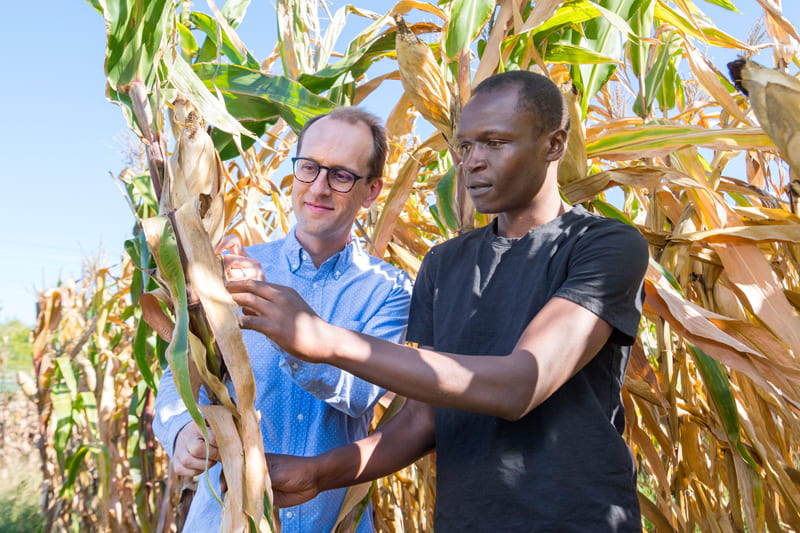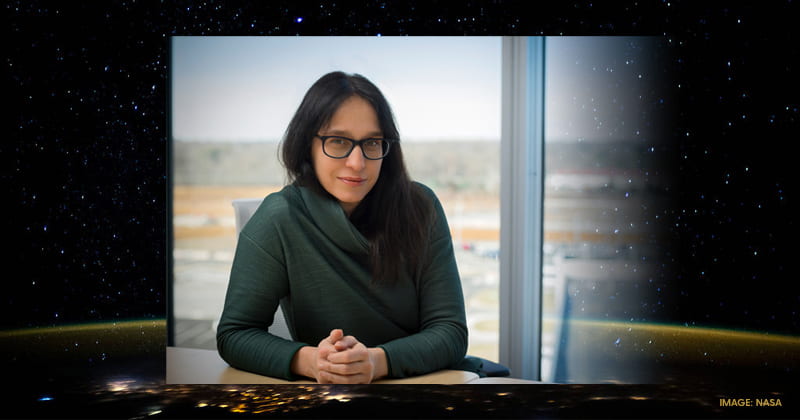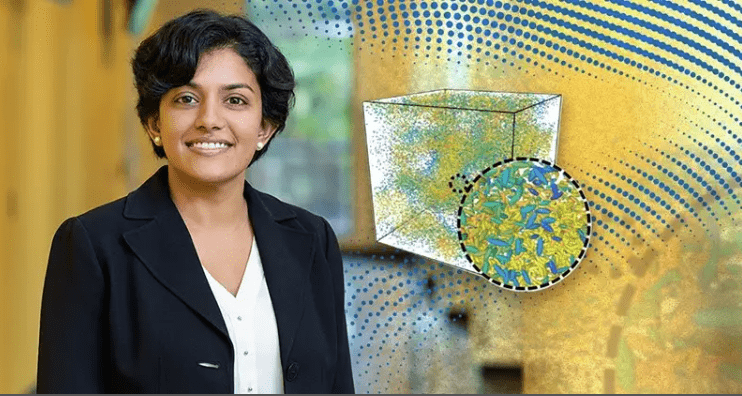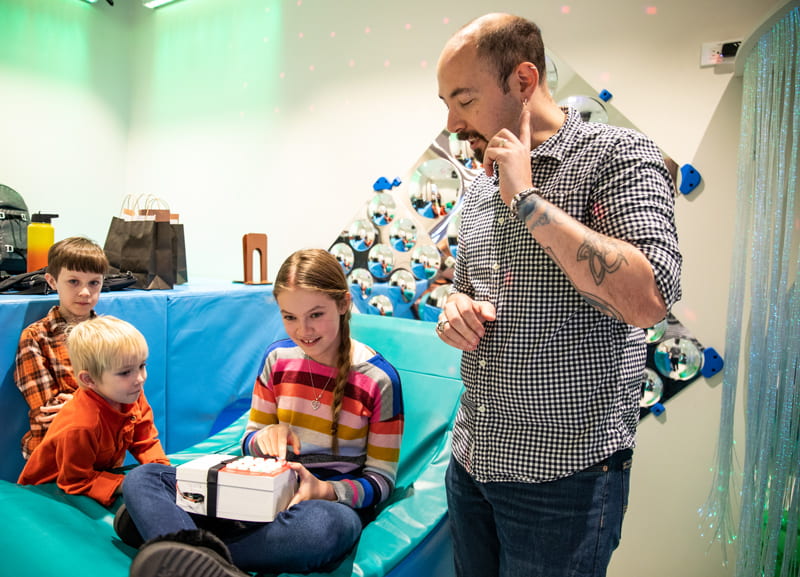News Archive
Research Desktop Demo Given by Indiana University's Robert Henschel
Feb 13, 2024
Indiana University operates a remote Linux desktop environment called the Research Desktop. This service provides students and researchers access to graphical applications, in a low latency and highly interactive fashion. The system has been designed to lower the barrier of entry and broaden adoption of traditional HPC and high-throughput computing environments.
Explainable AI
Jan 29, 2024
UD computer scientist Xi Peng and doctoral student Kien Nguyen are working to develop robust machine-learning methods that can accurately and reliably dtect objects on the sea floor
Davis, Shores named 2023 Gerard J. Mangone Young Scholars
Jan 24, 2024
AICoE affiliated faculty member Kyle Davis is recognized for being a promising faculty member and accomplished work as a researcher by UD’s Francis Alison Society
Our Cities and Climate in 100 Years
Dec 05, 2023
AICoE affiliated faculty Jing Gao receives NSF Career Award to probe future climate and urbanization
Artifical Intelligence in Teaching and Learning
Dec 04, 2023
UD leads the conversation about AI in the context of teaching and learning with an interdisciplinary UD working group and other iniatives
Exascale's New Frontier: SOLLVE
Nov 27, 2023
AICoE Co-Director Sunita Chandrasekaran leads the ECP SOLLVE project and advancing the OpenMP application programming interface into the exascale era
Designing Cities for 21st-Century Weather
Nov 09, 2023
As weather extremes become the new normal under climate change, University of Delaware data scientist and AICoE affiliate Jing Gao and regional climate scientist Melissa Bukovsky from the University of Wyoming are working to understand how urban land patterns can help reduce population exposure.
Early Career Award
Oct 05, 2023
UD’s Kyle Davis received the 2023 Global Environmental Change Early Career Award from the American Geophysical Union
Next Generation AI Education
Oct 12, 2023
New AI graduate certificate, launced by the AICoE, in Artificial Intelligence provides students with essential skills, hands-on experience, for a wide-range of career paths.
UFOs to UAPs
09/15/2023
UD physicist and AICoE affiliated faculty Federica Bianco brings data analysis expertise to NASA panel
Computing-Based Solutions to Real-World Problems
Aug 02, 2023
UD’s Data Science Institute and AI Center for Excellence hosted their first joint Hackathon July 17-19 2023
Insights for Future Innovations
Jul 20, 2023
Arthi Jayaraman, Centennial Term Professor for Excellence in Research and Education in the Department of Chemical and Biomolecular Engineering and AICoE affiliated faculty member, and her lab are developing computational methods to help experimentalists design new, innovative materials for a variety of fields and applications.
2023 IEEE/ACM International Conference: Best Paper Award
07/14/2023
A multidisciplinary team of researchers from the College of Engineering, led by UD assistant professor and DSI Resident Faculty member Leila Barmaki, and co-author, DSI Affiliated Faculty member Joshua Cashaback, received the Best Paper Award at the 2023 IEEE/ACM international conference on Connected Health: Applications, Systems and Engineering Technologies (CHASE), which took place in Orlando, Florida from June 21-23. The paper title is “Virtual Therapy Exergame for Upper Extremity Rehabilitation Using Smart Wearable Sensors.”
AICoE Co-Director Kathy McCoy Spoke at Tech Forum about the Demand of AI Education
Mar 24, 2023
As an industry itself, AI is a hot one, used in industries including — but far from limited to — fashion design, energy, manufacturing, healthcare, finance and media. At the University of Delaware, where AI research and development includes 20 departments, seven colleges and 48 faculty members, the number of students in AI-related computer science majors increased from 296 in the fall of 2016 to 791 in the fall of 2022, according to Kathy McCoy, professor and chair of Computer and Information Science at UD.
Learning to Love Music
March 9, 2023
AICoE Affiliated faculty Matthew Mauriello, Assistant Professor of the department of Computer and Information Sciences is involved in a cross-college innovation helping children with autism while providing a high-impact learning experience.
Improving Algorthims, Fostering Community
02/13/2023
With innovative research and inclusivity, AICoE affiliated faculty Prof. Hui Fang exemplifies UD’s collaborative culture
AICoE Affiliate Leila Character Among the UD Researchers Exploring Antarctica Conducting Research on Pengiuns and Ocean Currents
01/26/2023
Fieldwork in Antarctica is tricky, just ask University of Delaware scientist Matthew Breece. There is the 10-day trek to get there from Delaware, which includes a sometimes stomach-revolting four-day sail through Drake Passage, heavy research equipment to manage, limits on what you can pack.
AICoE Seed-Funded Faculty Gonzalo Arce Honored for Inventions
12/08/2022
UD’s Gonzalo Arce elected fellow of National Academy of Inventors. A prolific innovator, Arce is an inventor on 25 patents spanning inventions with environmental, health care and technology applications, from the laster printer industry to smart QR codes to low-dose X-ray computer tomography imaging, which is now recommended as a screening test for adults at high srisk of developing lung cancer.
AI Center of Excellence Awards First Round of Seed Funding Resources
12/14/2022
The AICoE has concluded its first round of seed funding since launching in the summer of 2022. During this Call for Proposals period, 22 letters of intent from 12 different departments across campus were submitted. 10 teams were invited to submit full proposals – and 5 were awarded funding and resources from the center.
AICOE Co-Director Sunita Chandrasekaran Leads Research on World's Fastest Exascale Supercomputer
Nov 18, 2022
Chandrasekaran and her team, which included researchers from Germany’s Helmholtz-Zentrum Dresden-Rossendorf research laboratory, or HZDR, and its Center for Advanced Systems Understanding, or CASUS are testing the capabilities of Oak Ridge Leadership Computing Facility’s Frontier supercomputer.
AICOE Affiliated Faculty Guangmo (Amo) Tong Receives NSF CAREER Award
Nov 17, 2022
Guangmo (Amo) Tong, assistant professor in the Department of Computer and Information Sciences at the University of Delaware’s College of Engineering, is using fundamental computer science research toward improving data-driven decision making. Through a better understanding of the theories that underlie algorithmic decision-making, Tong’s research can support future breakthroughs across a wide range of applications.
Harnessing the Power of the World's Fastest Computer
Oct 18, 2022
UD’s Prof. Sunita Chandrasekaran, students play key roles in exascale computing.
AICOE Affiliated Faculty Ioannis Poulakakis is Developing a Treadmill to Assess Robot Locomotion
May 05, 2022
Poulakakis, along with Department of Mechanical Engineering Professors Panos Artemiadis, Guoquan (Paul) Huang and Bert Tanner are spearheading the project, which will combine a nearly 5-foot-tall robot and a novel treadmill system that will allow researchers to test the robot’s ability to adjust to dynamic changes in the environment.
Ag-Inspired Engineering
How engineering principles support plant science. When Tropical Storm Isaias pummeled the East Coast in summer 2020, it created life-threatening tornadoes and weather conditions that ruined homes and flattened farm fields across Delaware. But in Newark, in a small field planted with different varieties of corn, one professor noticed that not all of the plants had the same damage.
Robot Research Honored
Fabrizio Sergi, an assistant professor of biomedical engineering at the University of Delaware, has received a National Science Foundation (NSF) CAREER award to support fundamental research in motor control that could in the future improve practices in neurorehabilitation for individuals with motor impairment.
Programming the Soon-To-Be World's Fastest Supercomputer
What’s it like designing an app for the world’s fastest supercomputer, set to come online in the United States in 2021? The University of Delaware’s Sunita Chandrasekaran is leading an elite international team in just that task.
Smarter Models, Smarter Choices
UD’s Vlachos and Lansford develop high confidence approach for artifical intelligence-based models. They call it artificial intelligence — not because the intelligence is somehow fake. It’s real intelligence, but it’s still made by humans. That means AI — a power tool that can add speed, efficiency, insight and accuracy to a researcher’s work — has many limitations.



























